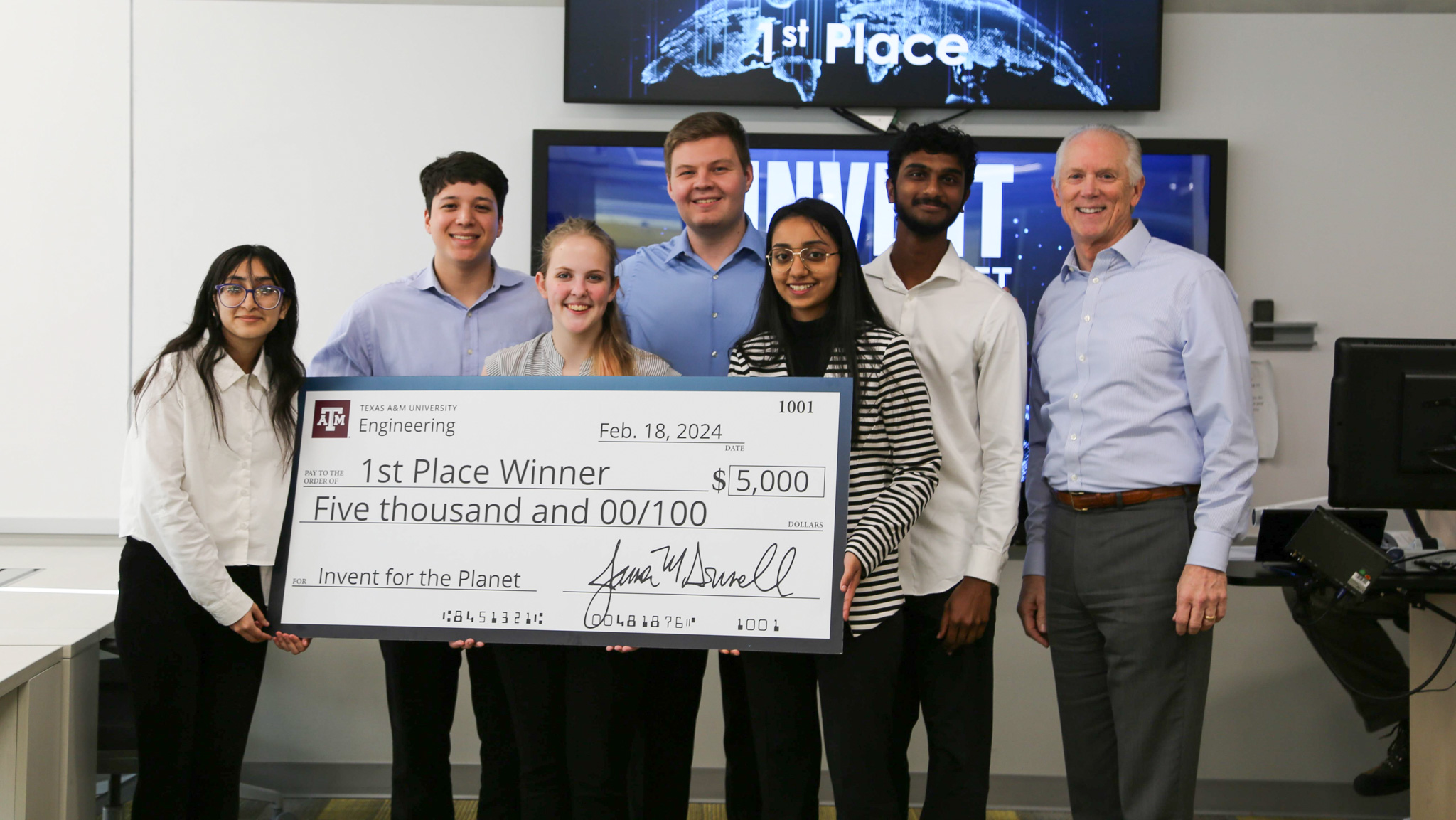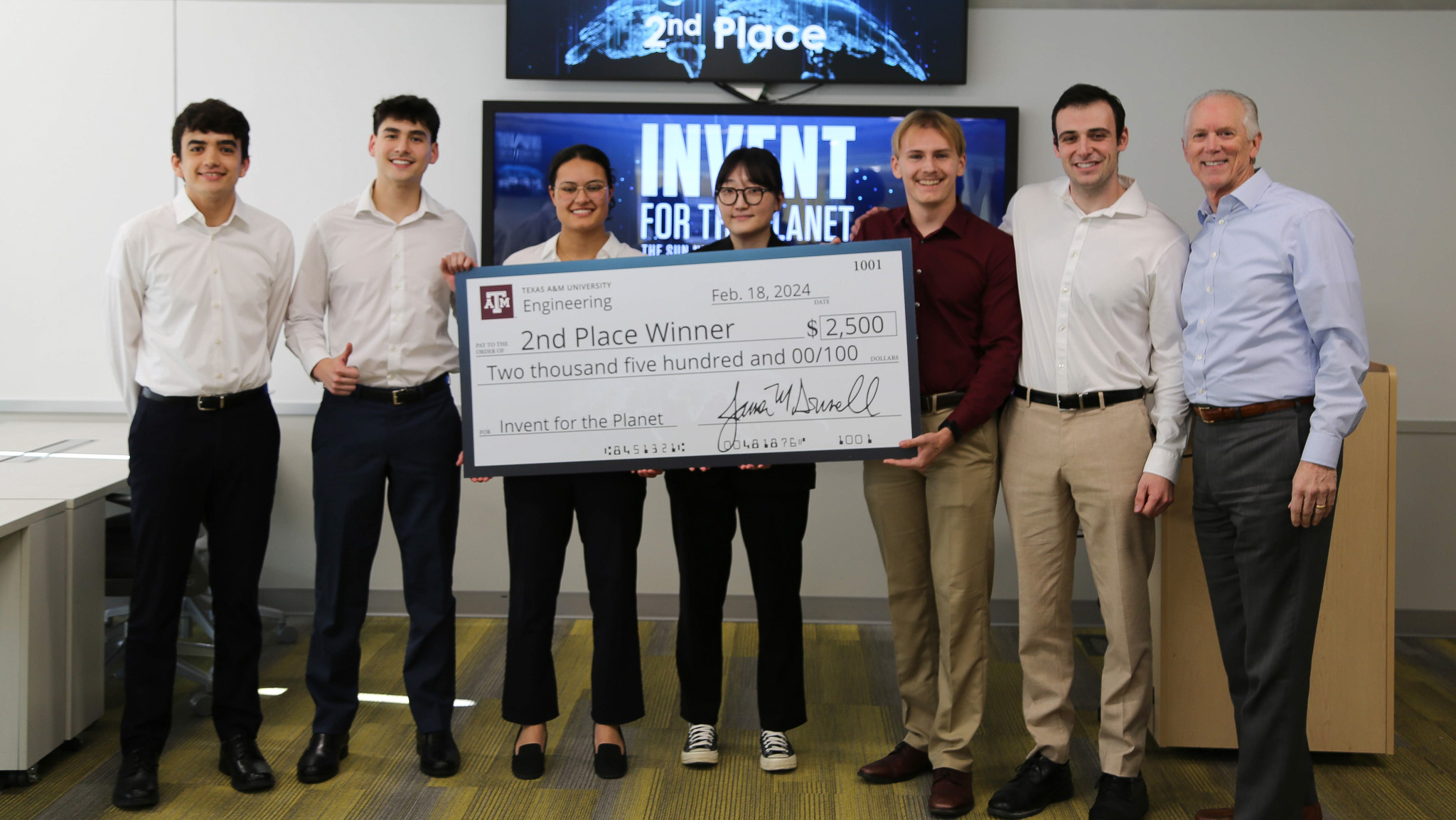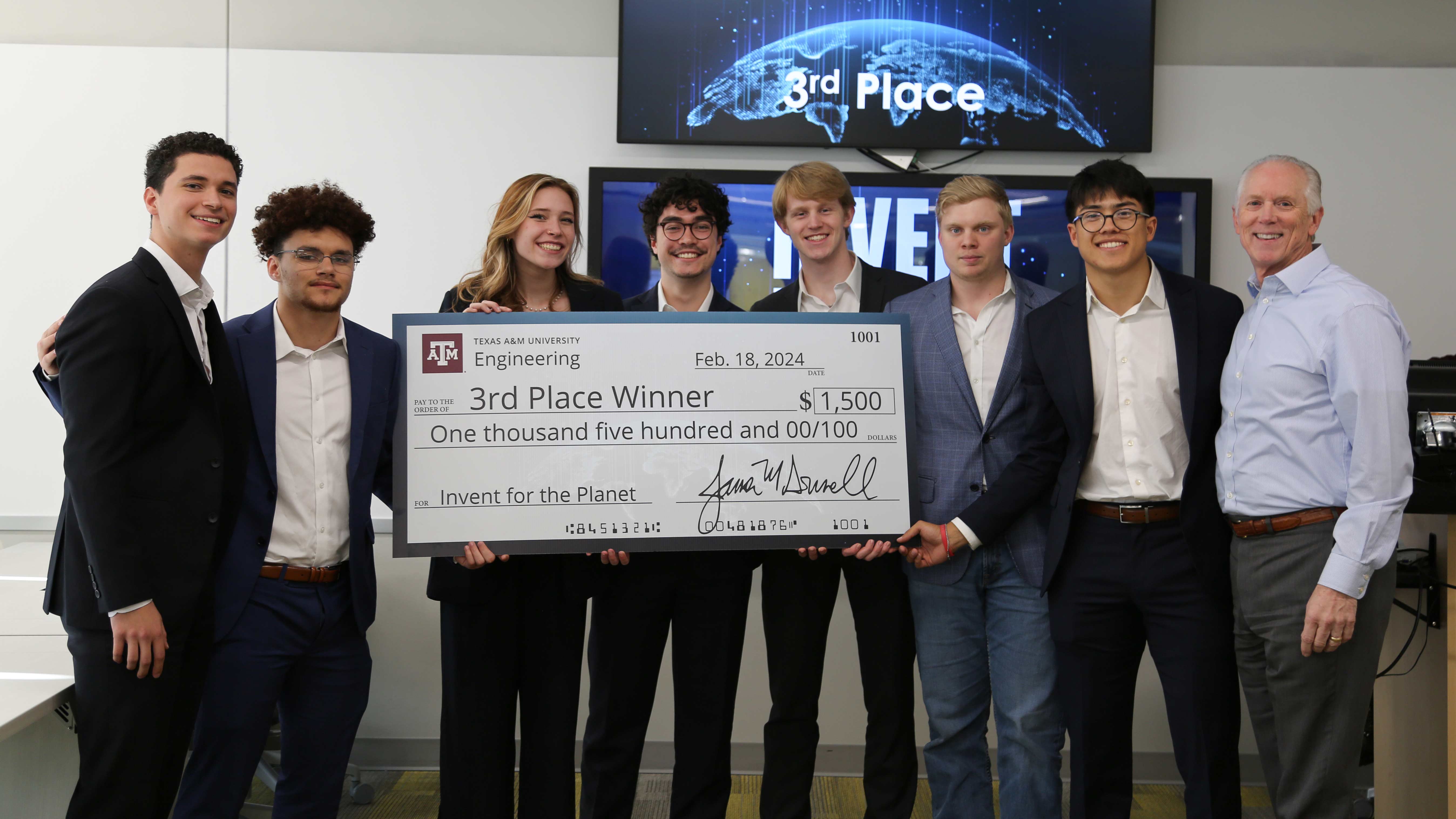
Texas A&M University joined 38 other universities to host the sixth annual Invent for the Planet (IFTP) from February 16-18. Students from around the globe, ranging from Pakistan to Thailand, participated in the initial phase of the competition. Students presented innovative solutions to some of the world's most urgent engineering challenges.
In the initial phase, participating universities identified three standout teams deserving of first-, second-, and third-place awards. Winners received $5,000 for first place, $2,500 for second place, and $1,500 for third place. First-place teams will proceed to the next round, where they will submit their presentation videos to a panel of judges. In March, judges will select the top five teams. Notably, this year's finalists will have the unique opportunity to convene in Aix-en-Provence, France, for the final pitch competition on April 18.
Throughout the competition, students connected with global peers, industry professionals, and academic mentors, soliciting valuable insights and guidance as they tackled the designated problem statements.
“As we say, the sun never sets on innovation - these students are working on real-life problems that affect global populations; they're not made up, and they're not academic. People's lives depend on solutions,” said Rodney Boehm, judge for the competition. "Being a judge for IFTP allowed me to see the thought processes and the innovations of our students. Having them explain what's important to them, seeing their passion and what they can come up with gives me a real sense of hope and purpose."
As we say, the sun never sets on innovation - these students are working on real-life problems that affect global populations.
One of the main goals of IFTP is to encourage engineering students to use their engineering skills and follow their entrepreneurial passions outside of the classroom.
“If you are an engineering student that may be nervous about applying, I would definitely say do it,” said Zoe Hockaday, a general engineering student and member of the first-place team Water Wise. “I just got an email one day and thought it looked cool. I just showed up. I was extremely nervous, but I had an amazing time and made some awesome friends that I’ll probably have for years to come.”
The Texas A&M University winners
Team Water Wise
- Zoe Hockaday, general engineering
- Hamna Shahid, general engineering
- Jaden Montalvo, mechanical engineering
- Adhav Rajkumar, electronic systems engineering technology
- Tanvi Aggarwal, general engineering
- Cedric Pannell, electrical and computer engineering
Middle to low-income nations face a critical water crisis as the agricultural industry consumes up to 90% of available fresh water. Of primary concern are rice paddy fields, which are traditionally flooded and require a significant amount of water to cultivate.
Team Water Wise developed a cost-effective solution that prioritizes water conservation and encourages efficiency in agricultural practices. Their proposal highlighted a technique for rice farming known as alternate wetting and drying, which has been found to decrease water usage by 40%. The team made note that as farmers are apprehensive about adapting to new techniques for fear of decreasing yield, their prototype, a durable stick stake, would alleviate present concern by providing a light-up system to alert cultivators if the water in the fields goes below the minimum. This simple, low-cost design not only led to the team’s first-place award but also the title of “Most Feasible Solution.”
“I was blessed with an amazing team who worked really well together. Even when we had arguments, we were able to work it out step-by-step,” said Hockaday. “We had all different ages and majors [on our team], and I think those differences really worked out well for us in the end.”
Team Gulf Gliders

- Chris Lee, mechanical engineering
- Blake Brummett, mechanical engineering
- Katelijne Groeneweg, mechanical engineering
- Austin Grendel, biomedical engineering
- Jiwon Chun, computer science
- Preston DuBose, manufacturing and mechanical engineering technology
The commercial fishing industry is realizing the need for innovation in its harvesting practices since non-target species are incidentally caught, leading to devastating effects. Industrial techniques, such as shrimp bottom-trolleying, have ruined the sea floor across the Gulf of Mexico over recent decades by killing coral and other bio-life. This has caused multiple species to become functionally extinct and resulted in far-reaching consequences, including the collapse of fisheries that local populations heavily rely on.
Team Gulf Gliders created an innovative solution that can be deployed and adapted within existing fishing practices by modifying the nets to significantly decrease bycatch. Their prototype, which they presented suspended between two boards to mimic the weightless nature of the ocean, demonstrated how the filter sewn into the front of the net would sift out unwanted bio-life based on size, as well as utilize light directed to an escape hole to allow bycatch to navigate out. This inventive design made of mosquito nets and 3D-printed clips awarded them not only the title of second place but also the award for “Best Prototype.”
“Through my involvement in IFTP, I realized that any skill can be an engineering skill because engineering is the discipline of problem-solving,” said manufacturing and mechanical engineering technology student Preston “Ben” Dubose. “I employed all of the tricks, like sewing and laser-engraving, but also soft skills, like how to work with people and to empathize with populations who need these products the most.”
Dubuse continued, pointing to his head and then his heart, “An opportunity like [IFTP] allows you to use this and this.”
Team RESOIL

- Lyle Link, construction science
- Rhys Vennema, computer engineering
- Kendell Taylor, computer engineering
- Mason Burdett, nuclear engineering
- Nicholas Mazon, industrial and systems engineering
- Evan McCuaig, aerospace engineering
- Shayla Wulf, general engineering
With poverty housing areas doubling to almost 25% of the world’s population, a severe health and housing crisis looms. Roughly 830,000 people die each year in India from viruses associated with a lack of safe sanitation and access to clean water sources. To combat this, team RESOIL spent 48 hours developing a cost-effective and livable sanitary housing solution for the rapidly expanding slum populations.
“We designed a toilet that would be easily installed into homes in densely populated, impoverished communities,” said industrial and systems engineering student Nicholas Mazon.
In what was awarded “Best Presentation,” the team clearly laid out the process of their solution with a chart, explaining that after residents use the toilet, biowaste would be collected and transported to an aeration facility to become fertilizer, bagged with added bio substrates to make it more effective, and finally, sold to local communities at a market rate.
“Part of this prototype was showing that we’re not just giving toilets, but also aim to provide a service which can convert the waste into usable fertilizer,” said Mazon.
RESOIL highlighted the vast potential of the opportunity to turn waste into a commercial product, as revenue from fertilizer sales could pay for service operations or subsidize the cost of toilets for impoverished residents. When discussing his experience collaborating with team members from across the globe at IFTP, Mazon explained how competitions like this allow students to gain confidence in themselves while learning from others.
“I thought it was really interesting to work with other engineers that had different backgrounds and then apply my skills to contribute to how they had applied theirs,” said Mazon. “As an industrial engineering major, I work a lot on optimization, planning and management, so as we were addressing our problem through a service, I think my skill set really shined through that. It was a very positive experience, something unlike anything I had ever done. We had the opportunity to get together with people we’d never met and just go straight to tackling a problem. It was a great place to meet people who I can definitely consider friends now.”